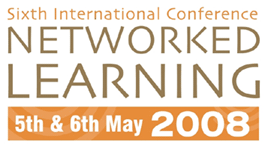

Approaches to Net Based Learning, Experiences with Social Constructivist Pedagogy in a Global Setting
Bodil Ask
Department of ICT, University of Agder, Norway, bodil.ask@uia.no
Harald Haugen
TISIP & Stord/Haugesund University College, Norway, harald.haugen@hsh.no
Abstract
No doubt, the Information and Communication Technology (ICT) has come to stay and play a central role at all levels of education. Since the early 1990-ies net based learning has grown from rather primitive distribution of information and learning material, exercises and assignments, through several stages of methods and pedagogical approaches. Despite that net based learning environments still seem to be a tough challenge to well estab¬lished academic staff in higher education, it is now established as a serious way of reaching out to new and distributed target groups. This provides new target groups with opportunities for higher education.
This paper presents some of the theoretical background for the implementation of net based learning environments. Special emphasis is on experiences with social constructivist theories and methods, discussing obstacles, challenges as well as positive feed-back during the past 3-4 years of practice. Practical approaches and experiences are related to the theories, with student feed-back from courses on a global scale.
Our findings presented in this paper originate from courses where social constructivism is both the main learning approach and a central learning objective. The two courses, E-teaching 1 and E-teaching 2, are both offered by the United Nations University - Global Virtual University (UNU-GVU), in collaboration with two Norwegian universities, University of Agder (UiA) and Stord/Haugesund University College (HSH). Student groups mainly consist of university teaching staff and leaders who see the need for going online in order to fill the requirements for higher education in their respective regions. The feed-back from so highly qualified “students” is of great value for further development of net pedagogy and methods.
The goal for GVU and the mentioned courses is to assist university staff, particularly in developing countries, to learn about and practice online learning at their home institutions. In those parts of the world the need for flexible education is even greater.
The lack of infrastructure and access to modern technology is often argued against this strategy for offering higher education to the huge masses in Asia, Africa and the Middle East. Different agencies, open universities and other interested parties have rather offered decentralised courses and study programmes, exchange programmes etc. instead of net based study programmes. Statistics now show, however, that the situation is changing drastically. Nowhere in the world is the usage growth as high as in the so-called developing countries, in Africa, Middle East, Asia and Latin America.
It is thus reason to believe that within few years’ time access
to Internet will be rather widespread also in the developing world. In
the paper some reflections and ideas are presented for further adaptation
of the learning environ¬ments, methods and strategy for implementation
of online learning in higher education.
| About NLC |
2008 Conference Papers
| Conference Committee| Keynote
Speakers
| Papers from previous NL conferences |Research Seminars| Current Conference
| Sponsors | Contact
|
